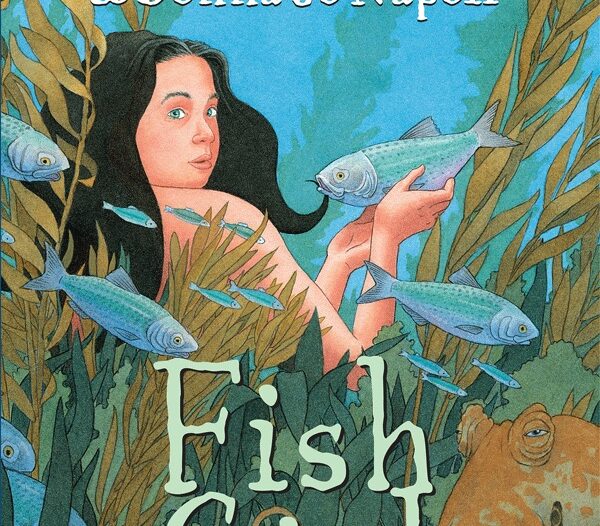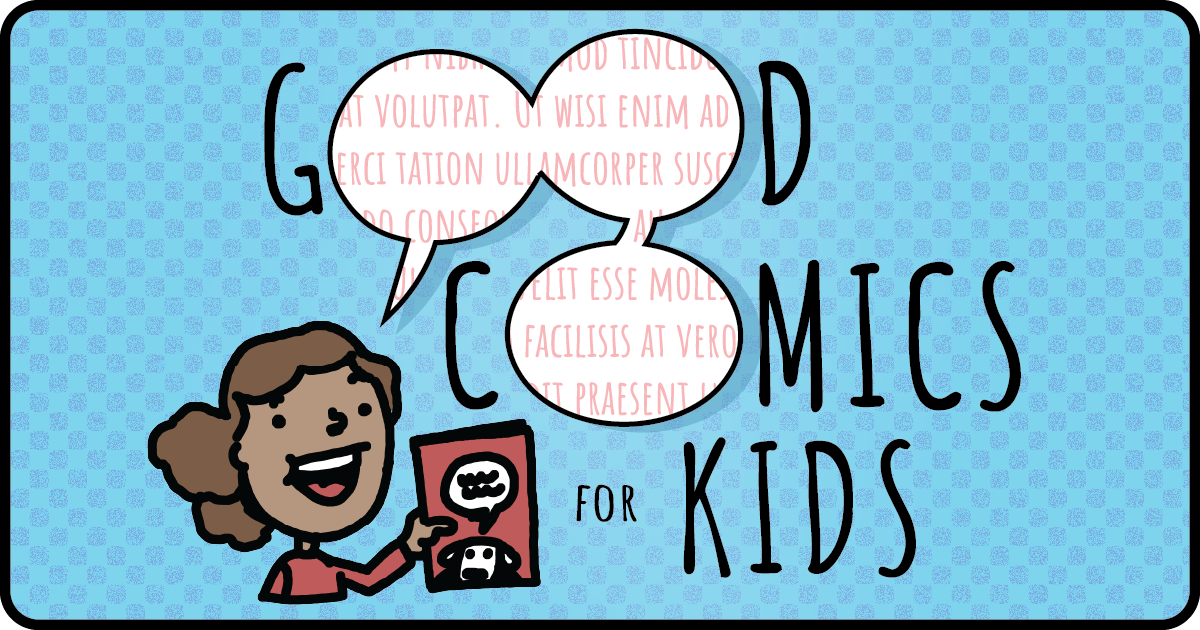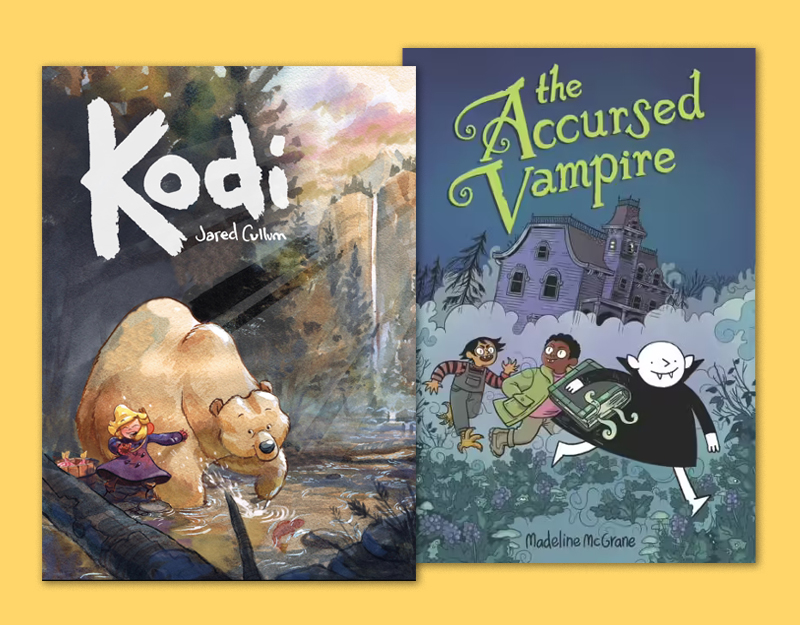
Review: ‘Fish Girl’
Fish Girl
By Donna Jo Napoli and David Weisner
Clarion Books
Grades 5-7
Fish Girl is a modern fairy tale, and like so many of the old ones, it’s a story of abuse and escape. It’s beautifully drawn, well told, and carries a message of great value: Question authority. Beyond that, it may help certain readers see their own situation, or that of others, in a different light.
The setting is a three-story building that has been converted to an aquarium. We start out seeing it from inside the tanks, so the fish and other sea creatures are colorful and animated, and the human spectators are washed-out blue. A narrator, speaking as King Neptune, talks about the ocean and the creatures and the most astonishing part of this astonishing aquarium: A girl’s room, with a four-poster bed, a frilly dress laid out on an old-fashioned trunk, and other girly accoutrements strewn around. This, the narrator says, is the home of Fish Girl, who is part girl, part human, and very shy-but if the visitors look closely, they may catch a glimpse of her. The camera pulls back and we see King Neptune sitting on his throne, on an island in a giant fish tank. To demonstrate his power, he raises his hand, and the water is roiled by waves.
ADVERTISEMENT
ADVERTISEMENT
A few panels later, everything shifts into sharper focus, when King Neptune hops off his throne and starts shilling T-shirts. He’s not the mythical king of the sea, he’s a guy in a costume, and the voice of the narrator is not the voice of Neptune, it’s the voice of Fish Girl-or rather, it’s the thoughts of Fish Girl, because she cannot speak.
Fish Girl really is a mermaid, and although she doesn’t have the power of human speech, she can communicate with the sea creatures. Her job is to offer tantalizing glimpses of herself, but the man who plays King Neptune tells her not to let the visitors see all of her at once, threatening that if she is too obvious, she will be taken away by scientists and dissected. In fact, the aquarium keeper is struggling. His livelihood-and, ultimately, hers-depends on her ability to maintain a mysterious presence, a fine balance between being seen and unseen. She must hint at being there but never show herself fully.
When she makes friends with an inquisitive girl, though, Fish Girl starts to doubt what King Neptune has been telling her. Does she really have to stay in this aquarium? Is the outside world really filled with danger? Is it so terrible to have a human friend? Once she starts questioning what she has been told, things fall apart pretty quickly. She realizes that he is a fraud, that the stories he has been telling her are false and-when she sums up the courage to venture outside her tank-that she can grow legs and walk like a human. The more she explores the world outside her tank, the more she is determined to live there-even though it is frightening at times. The story concludes with a dramatic and satisfying finale, as the aquarium is swept out to the sea and Fish Girl-now named Mira, is reunited with her human friend.
To an adult, it is obvious that King Neptune is abusive, although he is never overtly violent. Rather, this is psychological abuse. “I’ll play his games,” she says at one point. “When he’s happy, he leaves me alone.” He uses emotions, putting everything on her, and she often feels guilty when things go wrong. The truth is powerful, though, and once she realizes he has been lying to her, she starts planning her escape. Her best friend, the octopus, is her ally in this, although when she is finally free, they have to part ways.
It may be less obvious to children that this is an allegory of a controlling relationship. They may simply see it as an exciting story. For some, though, it may be a useful model, leading them to ask questions and to think about themselves and those around them in a different way. It certainly could be the starting point for a fruitful discussion.
Wiesner is a three-time Caldecott Medal winner, and the art is truly gorgeous. With a combination of watercolor and line drawing, he guides the reader through the complicated (and physically improbable) spaces of the aquarium. The humans and the sea animals are drawn expressively, and his ability to endow the octopus with emotions is truly remarkable.
Fish Girl is a book that should be in every library and classroom, because of its obvious literary merit and the important story it has to tell. For some children, this book may be truly life-changing.
Filed under: Graphic Novels
About Brigid Alverson
Brigid Alverson, the editor of the Good Comics for Kids blog, has been reading comics since she was 4. She has an MFA in printmaking and has worked as a book editor, a newspaper reporter, and assistant to the mayor of a small city. In addition to editing GC4K, she is a regular columnist for SLJ, a contributing editor at ICv2, an editor at Smash Pages, and a writer for Publishers Weekly. Brigid is married to a physicist and has two daughters. She was a judge for the 2012 Eisner Awards.
ADVERTISEMENT
ADVERTISEMENT
SLJ Blog Network
The Moral Dilemma of THE MONSTER AT THE END OF THIS BOOK
Cover Reveal and Q&A: The One and Only Googoosh with Azadeh Westergaard
Parsing Religion in Public Schools
ADVERTISEMENT









I can’t wait to get this book for my library. My students are going to gobble it up!